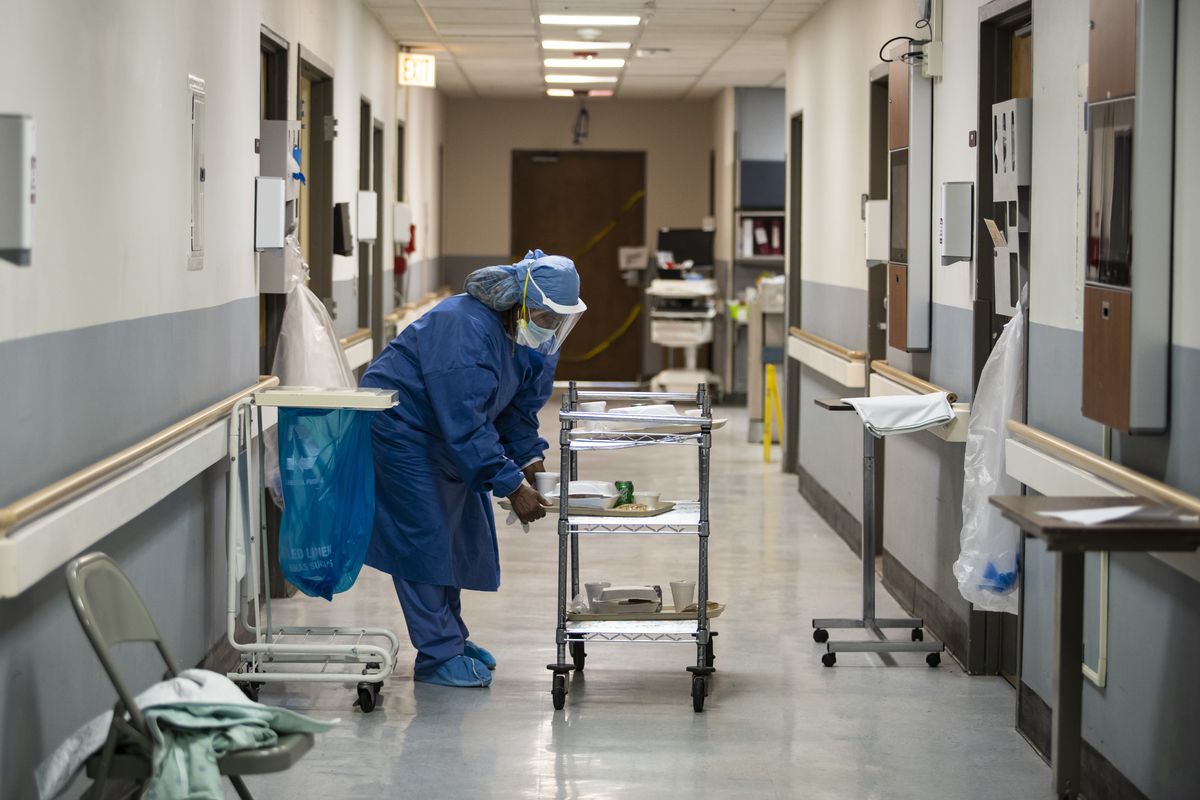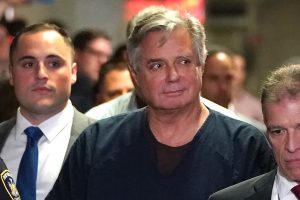The latest
Mysterious inflammatory syndrome striking kids in NY may be related to COVID-19
Amber Dean had recovered from a mild bout of the coronavirus and her family of five had just ended their home quarantine when her oldest son, 9-year-old Bobby, fell ill.
“At first it was nothing major, it seemed like a tummy bug, like he ate something that didn’t agree with him,” said Dean, who lives with her husband and three young children in the western New York town of Hornell. “But by the next day, he couldn’t keep anything down and his belly hurt so bad he couldn’t sit up.”
At the local hospital emergency room, doctors suspected an appendix infection and sent him home with instructions to see his pediatrician.
It was only later, after Bobby’s condition took an alarming turn for the worse, that doctors realized he was among the small but growing number of children with a mysterious inflammatory syndrome thought to be related to the virus.
New York Gov. Andrew Cuomo said Tuesday that New York is now investigating about 100 cases of the syndrome, which affects blood vessels and organs and has symptoms similar to Kawasaki disease and toxic shock. Three children in the state have died and Cuomo advised all hospitals to prioritize COVID-19 testing for children presenting with symptoms.
In New York City, which has reported at least 52 children sick with the syndrome, Mayor Bill de Blasio on Tuesday urged parents to call their pediatricians promptly if their children show symptoms including persistent fever, rash, abdominal pain and vomiting.
News
6:36 a.m. Potbelly considers shutting 100 sandwich shops amid coronavirus pandemic
Potbelly, the Chicago-based chain of sandwich shops, said Tuesday it is considering whether to close 100 locations, or about 23% of its total, as it scrambles to cut costs because of the pandemic.
CEO Alan Johnson discussed the potential closings in his report of the company’s first-quarter earnings. Potbelly said it saw a dramatic downturn in its results once the coronavirus, which has forced closure of restaurant dining rooms, spread widely in the U.S. during March.
Johnson said its same-stores sales for January and February were up from the year before but then took a 68% dive during March. The company quickly furloughed a third of its corporate staff and cut corporate salaries, including those of top executives, by 25%.
6:10 a.m. Chinese Americans in Chicago donate 1 million surgical masks to city’s first-responders
A group of Chinese American businessmen has donated 1 million surgical masks to first-responders and others in Chicago, saying Chicagoans did the same thing for China when the coronavirus emerged there at the beginning of the year.
“We are grateful to the frontline responders who are risking their well-being to protect Chicago neighborhoods,” said Citadel Securities CEO Peng Zhao, who organized the donation with his wife Cherry Chen.
The effort follows months of President Donald Trump blaming China for the pandemic.
On Monday, when a Chinese American reporter asked the president why he sees testing for the coronavirus as a “global competition,” he responded, “Maybe that’s a question you should ask China.” On Tuesday, Trump tweeted: “Asian Americans are VERY angry at what China has done to our Country, and the World. Chinese Americans are the most angry of all.”
Zhao and more than a dozen other Chinese American businessmen bought the masks and asked the University of Chicago Crime Lab to help distribute them.
Read the full story from Frank Main here.
New cases
Analysis & Commentary
6:18 a.m. Can we agree — when COVID-19 vaccines arrive, they need to be free?
Everybody agrees we need a COVID-19 vaccine. Multiple potential vaccines to save us from the coronavirus infections are in development. Can we agree on something else — when vaccines arrive, they need to be free?
Don’t be sidetracked because it was Sen. Bernie Sanders who pressed this point at a Tuesday hearing of the Senate Health, Education, Labor and Pensions Committee. Sanders, the Vermont Independent, made universal health insurance a centerpiece of his Democratic presidential bid.
This is not about Sanders. This is not about overhauling our health coverage system. Don’t get distracted.
A vaccine works if almost everybody gets it. That’s why schools have immunization requirements. You can’t enroll a kid in a Chicago Public School without a polio vaccine.
The Hispanic community in Chicago is particularly hard hit. Rep. Jesus “Chuy” Garcia, D-Ill., who has been scrambling for solutions, told me, “Access to a future coronavirus vaccine, once it’s developed, must be readily available to all segments of society, including immigrants, regardless of their ability to pay.”
If everybody has insurance, a preventative vaccine would likely be covered. If everybody has extra cash, paying for a vaccine may not be a big deal.
But everybody doesn’t have insurance or cash.


















